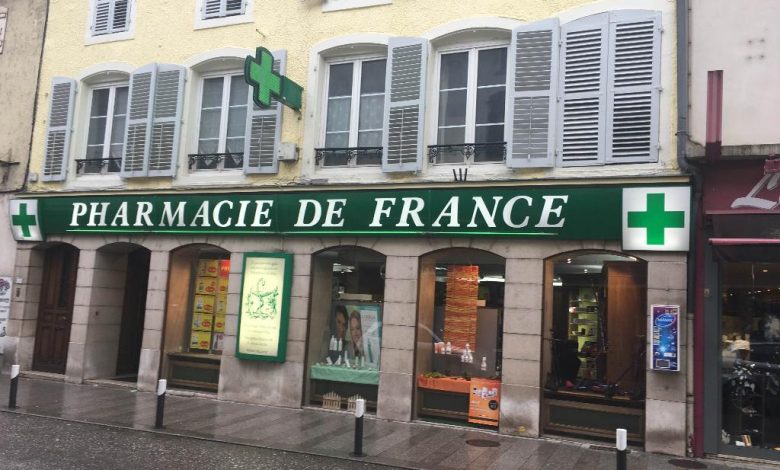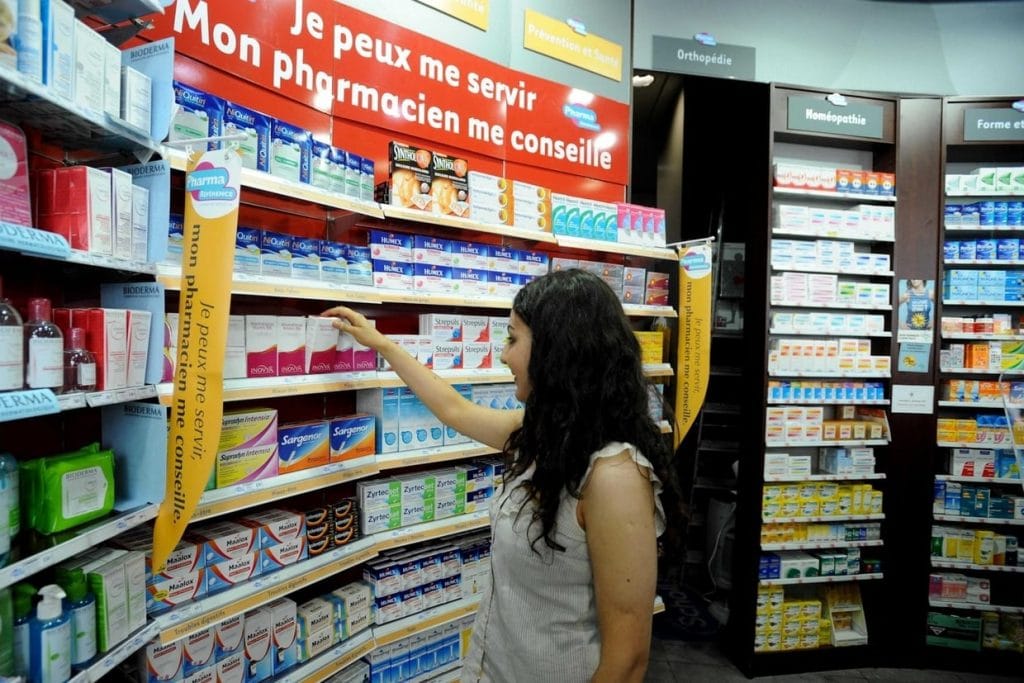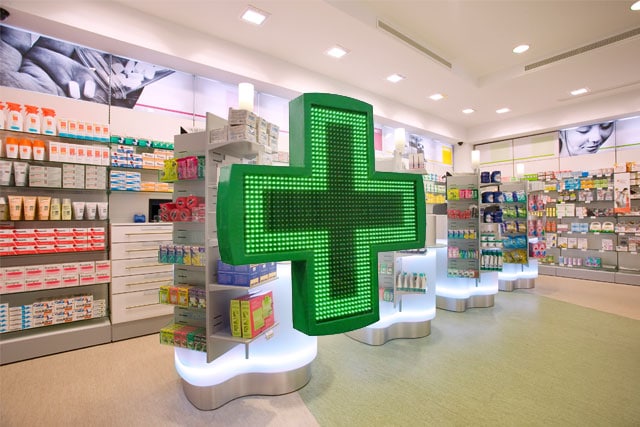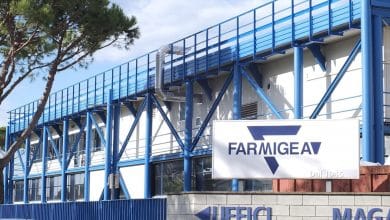
We denounce a disgrace that involves an unjustified bloodletting for Italian families
Uncompetitive generics, no refunds, small packs. In Italy, various self-medication and non-prescription medicines have higher prices than in the rest of Europe.
In Italy we pay up to 6 times more for over-the-counter medicines
Mr. Bruno is in France on vacation and, despite the relaxed pace and the use of sunglasses, his eyes become red and itchy. So enter one pharmacy to buy the artificial tears, trusted companions in everyday life: without it, his eyes just don't cooperate. The pharmacist gives him a  bottle at a cost of 1.50 euros. This surprises him: in Italy they cost much more, in pharmacies from 7 euros and up. So he shows the pharmacist an empty package he has with him and kindly asks him to check if the product he is selling him is actually similar. The pharmacist checks the composition and tells him, not without amazement after seeing the Italian price, that they are actually the same product. Then he hypothesizes, to justify the obvious price difference, that perhaps the Italian package contains more liquid: and instead, on closer inspection, the opposite emerges: the Italian bottle, in addition to being much more expensive, is also smaller. Bruno pays and goes out. She puts in artificial tears and her eyes immediately thank you. And with them also the wallet, because he spent a fifth of what he would have paid Italy.
bottle at a cost of 1.50 euros. This surprises him: in Italy they cost much more, in pharmacies from 7 euros and up. So he shows the pharmacist an empty package he has with him and kindly asks him to check if the product he is selling him is actually similar. The pharmacist checks the composition and tells him, not without amazement after seeing the Italian price, that they are actually the same product. Then he hypothesizes, to justify the obvious price difference, that perhaps the Italian package contains more liquid: and instead, on closer inspection, the opposite emerges: the Italian bottle, in addition to being much more expensive, is also smaller. Bruno pays and goes out. She puts in artificial tears and her eyes immediately thank you. And with them also the wallet, because he spent a fifth of what he would have paid Italy.
Our friend Bruno has saved up for this time, but as soon as he returns to Italy he will have to buy artificial tears at the same price as always, i.e. at least five times the price he would pay in France.
In Italy, over-the-counter medicines cost more than in the rest of Europe. And the price difference that citizens pay is, especially in some cases, substantial: up to six times more, according to a survey conducted by the association for the protection and defense of consumers Other consumption.
How can this happen?
Why do we pay so much more? What is this price increase due to, exorbitant in some cases, considering for example that a factor such as VAT for these products in Italy is equal to 10%, while in United Kingdom and in Germany, where i drugs over the counter they cost on average much less than here, is it much higher (20% and 19% respectively)?
While waiting for someone to explain to us why all this happens, we can speculate.
The first concerns the non-refundable (with rare exceptions) of drugs sold without a prescription, while the definition of a reimbursement as occurs for drugs in range A could act as an incentive for the State to lower prices, given that at least in part it would have to pay them instead of the citizens (who And  what happens in France and Germany, where over-the-counter medicines can be partially reimbursed if they are prescribed by a doctor).
what happens in France and Germany, where over-the-counter medicines can be partially reimbursed if they are prescribed by a doctor).
The second concerns the fact that in our country i generics (such as ibuprofen and acetaminophen) they are few and uncompetitive, and the strength of some brands (such as moment And Tachypirine) that drive sales allows to keep the price high even for drugs with expired patents, which end up costing slightly less than the branded drug. It must also be said that the surcharge depends in part, at least as regards medicines in tablets, also on the smaller size of the packages compared to other European countries, which contributes to increasing the final cost.
One cannot then not consider that to affect the final price of over-the-counter drugs also be the cost of distribution companies who bring medicines from the manufacturing companies to the points of sale, since the 57% of the non-prescription drugs.
Paracetamol and ibuprofen compared
The survey – in which the prices applied in Italy, Portugal, Spain, Belgium, France, Holland, Germany and the United Kingdom to 15 non-prescription medicines were compared – reveals a considerable variability in costs. PFor the molecule itself, Italy is almost never the least expensive country, indeed it is often the most expensive. For example thegeneric paracetamol here it costs five times as much as in Belgium, Holland, Spain and the United Kingdom: 16 cents against 3 for a 500 mg tablet. while for theibuprofenwe end up paying six times the price you pay in Holland: 29 cents against 5 for a 200mg tablet. As for theImodium, in Italy a 2mg capsule costs an average of 83 cents against 23 in France, therefore more than triple.
Considering that in 2017 in Italy they were spent on non-prescription drugs Almost two and a half billion euros for a total of 278 million packages, how much could be saved if prices were in line with those of European countries where costs are lower?
Related news:
Pharmaceutical companies and health tickets
Dear BSev, every populist government proposes the elimination of health care bills, which, however, would have their raison d'etre. In fact, in principle, between two citizens of equal economic status, it seems right to me that those who use a service contribute to the costs to a slightly greater extent than those who don't use it. The ticket also has the function of discouraging excessive and improper use of health services (for example, by relatives who park the elderly in hospital).
But the real cost problem for citizens is not the tickets; it's the medicines. From the 70s to today we have gone from a situation in which almost all medicines were free, provided they were prescribed by a doctor, to the current situation in which almost all of them are paid for, except for a few so-called "lifesavers". This has also produced a shift in research by pharmaceutical companies towards the development of over-the-counter medicines, which can be sold at a substantially free price and yield more.
This situation has further worsened with the appearance of products classified as supplements, but which are drugs to all intents and purposes, in the sense that they have proven therapeutic efficacy, so much so that doctors often prescribe them as a sole therapy, and not as an adjuvant.
These drugs, being classified as supplements, do not have to undergo accurate and very expensive clinical trials before being marketed, have instructions for use reduced to a few lines and do not have a list of contraindications and side effects. In theory, there shouldn't be any if the drug were only a supplement, i.e. a food supplement, but, in reality, if these products actually have therapeutic efficacy, they cannot fail to have side effects.
Dulcis in fundo, these pseudo-supplements, being considered voluptuous products, have very high prices on which the health authorities do not intervene.
Louis Lenzini, luigilenzini@fastwebnet.it
Corriere della Sera Italians by Beppe Severgnini – 22 October 2019
Decalogue Correct use of food supplements ()





